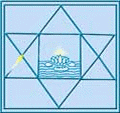|
In the earthly manifestation, the material substance is the foundation also of all non-material principles like Sense, Life and Thought. This does not mean that Sense, Life and Thought cannot have an independence beyond the material foundation. Indeed, they do have such an independence. We do not ordinarily understand this unless we employ supra-sensorial and supra-rational techniques of enquiry. This is quite natural as ordinarily “the sense works through the physical instruments, the life through a physical nerve-system and vital organs, the mind has to build its operations upon a corporeal basis and use a mental instrumentation, even its pure mental workings have to take the data so derived as a field and as the stuff upon which it works.”(Ibid, pg.270) However the sense, life and mind can surpass the workings of our neuro-physiological apparatus and they themselves can likewise be surpassed by consciousness that exceeds all of them. We fail to appreciate this for as Sri Aurobindo boldly states in The Synthesis of Yoga:
“The materialist idea mistakes a creation for the creative Power, a means of expression for That which is expressed and expresses. Matter and our physical brain and nerves and body are the field and foundation for one action of a vital force that serves to connect the Self with the form of its works and maintains them by its direct dynamis. The material movements are an exterior notation by which the soul represents its perceptions of certain truths of the Infinite and makes them effective in terms of Substance. These things are a language, a notation, a hieroglyphic, a system of symbols, not themselves the deepest truest sense of the things they intimate.
“Life-force is the dynamisation of a consciousness which exceeds it.
“Mind is the dubious outer penumbra of a conscious existence which is not limited by mentality but exceeds it”. (The Synthesis of Yoga, pg.294-295)
Thus, the dependency of all non-material principles on the material principle is “not absolute, but teleological”; “not a fundamental law of being, but a constructive principle”; “it is the result of a divine comic Will in the material universe which intends to posit here a physical relation between sense and its object, establishes here a material formula and law of Conscious-Force and creates by it physical images of Conscious-Being to serve as the initial, dominating and determining fact of the world in which we live”. (The Life Divine, pg.270)
At each plateau of the hill of consciousness, one or other principle dominates just at the material plane, the material principle dominates. Thus, beyond the material plane is the world of “conscious cosmic vital Energy, a force of vital seeking and a force of Desire and their self-expression”. (Ibid) Desire per se is a unique attribute of the vital plane, exists de novo and is not the resultant of “an inconscient or subconscient will taking the form of a material force or energy”. (Ibid) In fact, at this plane, the Life-Energy dominates and both the material principle and the mind have to cater to its whims and demands. Even if Mind has to develop higher possibilities at this plane, it cannot disregard the “original vital formula of desire-force”. (Ibid, pg.271)
Likewise, at the plane higher to the plane of Life-Energy, Mind is the dominating and determining factor and Matter and Life have to be sub-ordinate to it. Substance here is subtle and flexible to conform to the standards set by Mind. Mind can uses the senses for subtle action where the usual relation between physical organ and physical object is surpassed by a subtler formula as in extra-sensory perception. Mind can express love not by gross vital movements but by aesthetic symbols. Finally, Mind can override all other principles to express the law of divine manifestation.
There are other ranges beyond mind where supra-cognitive principles dominate. “At a yet higher reach Supermind—or, intermediately, principles touched by it—or, still higher, a pure Bliss, a pure Conscious Power or pure Being replace Mind as the dominant principle, and we enter into those ranges of cosmic existence which to the old Vedic seers were the worlds of illuminated divine existence and the foundation of what they termed Immortality and which later Indian religions imaged in figures like the Brahmaloka or Golaka, some supreme self-expression of the Being as Spirit in which the soul liberated into its highest perfection possesses the infinity and beatitude of the eternal Godhead”. (Ibid)
This whole ascending series of substance exists in the gestalt of a complex harmony where each plane carries the essence of the preceding planes as well as the potentiality of the antecedent planes and the power of the planes are directly proportional to their degree of subtlety. “Being, consciousness, force, substance descend and ascend a many-runged ladder on each step of which being has a vaster self-extension, consciousness a wider sense of its own range and largeness and joy, force a greater intensity and a more rapid and blissful capacity, substance gives a more subtle, plastic, buoyant and flexible rendering of its primal reality. For the more subtle is also the more powerful, -- one might say, the more truly concrete; it is less bound than the gross, it has a greater permanence in its being along with a greater potentiality, plasticity and range in its becoming. Each plateau of the hill of being gives to our widening experience a higher plane of our consciousness and a richer world for our existence”. (Ibid, pg.272)
Date of Update:
16-Jun-20
- By Dr. Soumitra Basu
|

